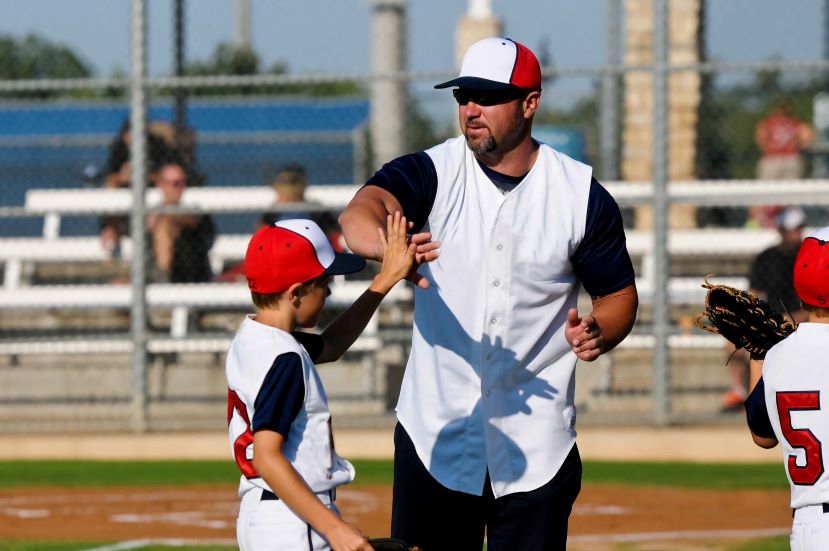Youth baseball coaching is more than teaching rules and techniques. It’s a chance to become a mentor, guide character development, and support young athletes on their journey—both in the game and in life. Great coaching means helping kids grow in confidence, discipline, and teamwork while creating a positive space for learning and fun. In this guide, we’ll explore common youth baseball coaching mistakes and how to avoid them, so you can be the kind of coach who makes a lasting difference.
Common Youth Baseball Coaching Mistakes to Avoid
Coaching youth baseball is rewarding, but it also comes with challenges. Being aware of common missteps allows you to steer clear of them and better support your team.
Overemphasizing Winning
Focusing too much on winning can backfire. When young players feel pressured to win at all costs, their love for the game may fade. Anxiety increases, and development often stalls. Instead, emphasize learning, teamwork, and individual growth. Celebrate effort and improvement—not just the scoreboard.
Neglecting the Fundamentals
Skipping basic skills is a mistake many coaches make, especially with eager players. Always take the time to reinforce the fundamentals: throwing, hitting, fielding, and base running. A strong foundation is essential and makes advanced techniques easier to master later on.
Giving Little Individual Attention
Each player develops at their own pace. When coaches treat everyone the same, some kids may feel overlooked or frustrated. Offer individualized feedback, notice strengths, and support improvement areas with specific drills. A little extra attention goes a long way in building confidence.
Communicating Poorly
How you speak to your players matters. Negative or unclear communication can lead to confusion and frustration. Use encouraging language, provide clear instructions, and offer consistent feedback. Keep an open line with both players and parents to build trust and address questions early.
Overloading Practice Sessions
Long or overly packed practices can wear kids out. While structure is important, balance it with fun and variety. Stick to age-appropriate session lengths, include skill-building games, and vary your drills. This approach keeps kids engaged and prevents burnout.
Forgetting to Have Fun
Baseball should be enjoyable, especially for young players. If practices feel like chores, kids may lose interest. Include mini-games, friendly competitions, and lighthearted team-building moments. Make sure your players are smiling as much as they’re learning.
Ignoring Safety
Never cut corners on safety. Skipping warm-ups or failing to teach proper techniques can lead to injuries. Always provide proper gear, monitor for signs of discomfort, and foster a culture where kids feel safe reporting injuries. A safe environment builds trust and supports long-term development.
By steering clear of these youth baseball coaching mistakes, you’ll help your players grow into stronger athletes and more confident individuals.
Combining Coaching and Mentoring for Success
Being a coach also means being a mentor. When you support players as people—not just athletes—you create a more meaningful experience. Here are some ways to build that bond and lead your team with purpose.
Build Trust with Each Player
Get to know your players as individuals. Learn their interests, strengths, and where they need help. Show that you care about them off the field, too. Trust builds stronger communication and opens the door for deeper learning.
Focus on Character
Winning isn’t everything. Character counts more. Model and teach values like respect, perseverance, and humility. Praise sportsmanship, applaud hard work, and guide players through both victory and defeat with grace.
Set Expectations Early
Make your expectations clear from the beginning. Talk to players about attitude, effort, and commitment. When kids understand what you expect, they’re more likely to rise to the challenge.
Teach Life Skills Through Baseball
Use the game to teach lessons that extend beyond the diamond. Leadership, teamwork, problem-solving, and resilience all grow on the field. Show kids how these lessons apply to school, friendships, and life in general.
Give Specific Feedback
Avoid vague praise or criticism. Be clear and constructive. Highlight what your players did well and explain how they can improve. Encouragement boosts confidence, while guidance helps them grow.
Create a Supportive Team Culture
A strong team culture is built on kindness and respect. Encourage players to support one another, cheer each other on, and learn from mistakes together. If bullying or negativity shows up, address it quickly and firmly.
Keep Learning as a Coach
Stay curious. Attend clinics, read coaching books, or talk with experienced mentors. When you keep learning, your players benefit from fresh ideas and better training methods.
Lead by Example
Kids watch what you do more than what you say. Be the kind of leader you want them to become. Stay calm under pressure, show up prepared, and treat others with respect. Your behavior sets the tone for your team.
Great coaching blends teaching with mentoring. When you focus on the person behind the player, you build a team that not only plays better but grows stronger in every area of life. By avoiding common youth baseball coaching mistakesand embracing the full role of mentor, you’ll shape your players into confident athletes—and better people.
For more tips on supporting youth athletes, check out our guide on Finding the Best Youth Soccer Cleats.








